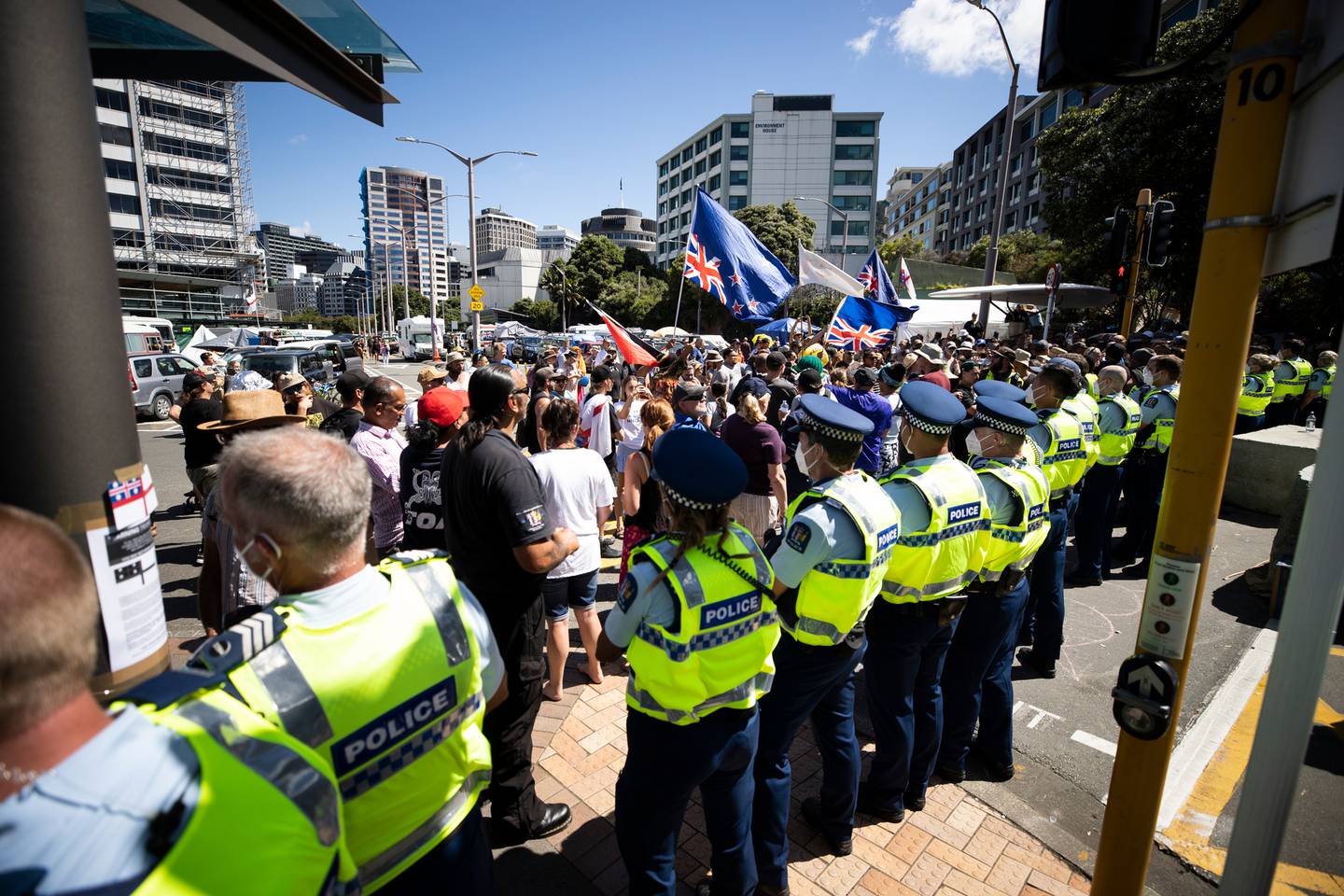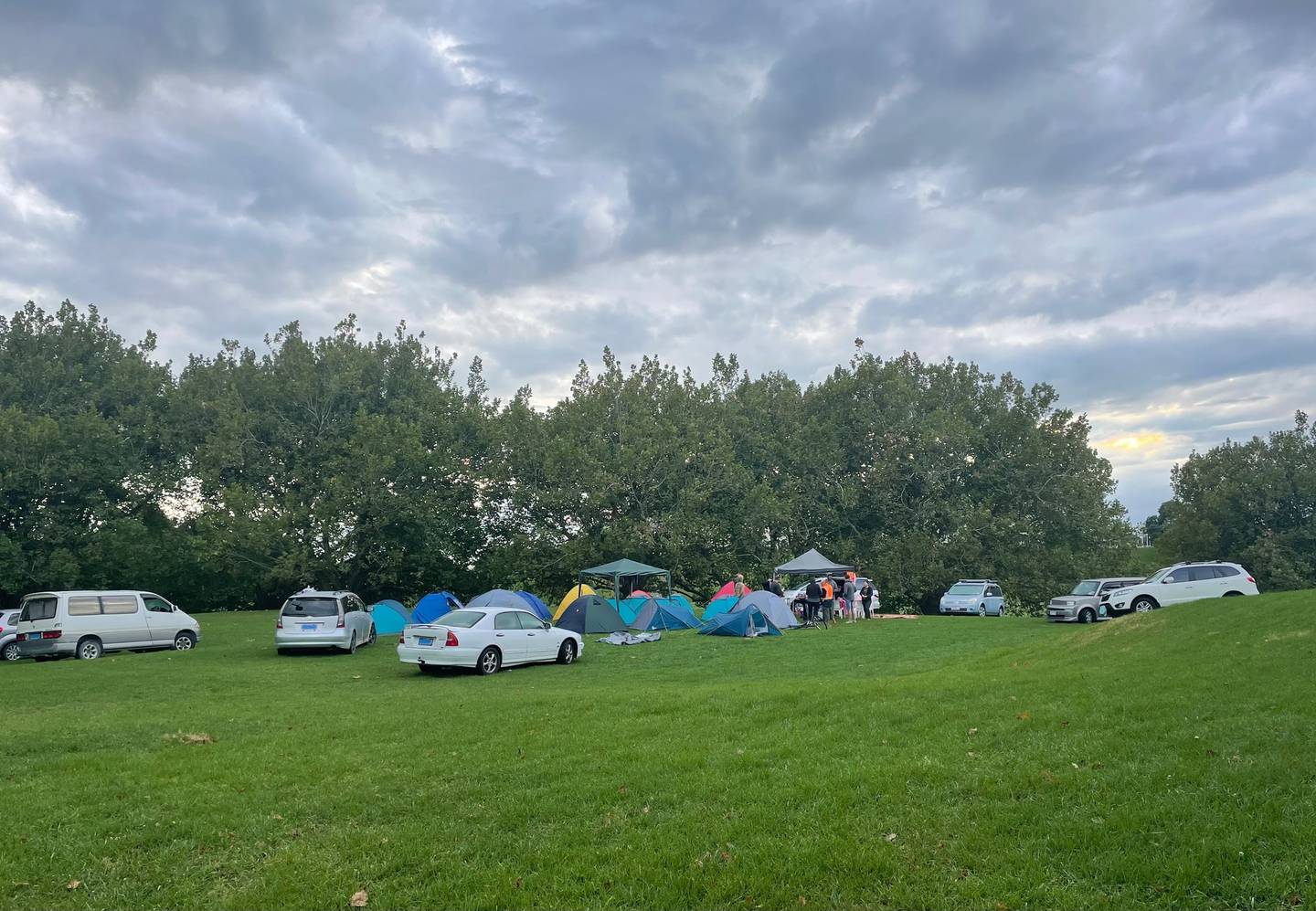Almost 15,000 new community cases of Covid-19 and one further death have been reported today.
A patient passed away in a Northland hospital yesterday. The person died from an unrelated medical condition and had tested positive for Covid-19, the Ministry of Health announced.
The tally of 14,941 community cases shatters New Zealand's previous case count record for the sixth day in a row.
There are now 305 in hospital, up 42 from yesterday. The number of people in ICU remains at five.
"In the past fortnight 59 per cent [of cases] have been under 30 years of age and 12 per cent over the age of 50," the Ministry of Health said.
"The two age groups with the highest percentage of cases are people aged between 10-19 years of age and those aged between 20-29 which account for 25 per cent and 25 per
cent of cases respectively."
However, the opposite trend had been seen among those who are hospitalised with the virus, with most over the age of 50, officials said.
"This reflects similar trends seen overseas where younger people, who are more socially active, often have higher infection rates, though it is the older age groups which are most likely to require hospital treatment from Covid-19."
The Auckland region's three DHBs "continue to predominate with the highest rates of infection in the country".
But Southern, Waikato and Bay of Plenty DHBs also have high rates.
Over the course of the past week, the number of newly detected Covid-19 community cases each day has more than quintupled - from just over 2500 cases reported last Sunday to 13,606 yesterday.
The huge spike in cases has singled New Zealand out as one of the most infectious places in the world at the moment, according to a new analysis.
The Ministry of Health is set to release the latest case statistics around 1pm, revealing if the steep upward trend will continue.
Since last Sunday, hospitalisations have also climbed but not nearly at the same rate. There were 100 Covid-19 patients in hospital one week ago and 263 yesterday.
That's about what was expected, according to a 25-page update on the latest Omicron variant studies released by the Ministry of Health in recent days. Omicron remains more transmissible than the previously dominant Delta variant but continues to have a lower risk of hospitalisation and death, the report states.
However, vaccination status and co-morbidities still play a large role in determining overall risk, the report noted.
"A preprint Swedish study comparing Omicron period vs Delta found that risk of severe disease was lower with Omicron by 40% for unvaccinated and 71% less for vaccinated individuals," the report states.

Police and protesters face off at Parliament on Saturday, which marked the 19th day of the anti-mandate occupation. Photo / George Heard
"Also, the risk for severe Covid-19 remained high among unvaccinated, first-time-infected cases of both sexes during the Omicron period in the age group 65+, and also among males in the age group 40-64 years with two or more comorbidities."
A US study, meanwhile, has found that while the risk of hospitalisation is smaller per individual, hospitalisations overall increased due to the large increase in the number of people infected.
There have been eight Covid-related deaths in New Zealand in the week from last Sunday to yesterday – with five deaths reported on Friday alone.
New Zealand's unwanted Covid distinction
New Zealand's infection rate is currently the highest in the world, according to an analysis released this morning
by Rako Science, which offers saliva PCR testing.
However, the unwanted distinction isn't especially surprising as New Zealand's surge comes after the Omicron outbreak has already peaked in many other countries.
New Zealand's Reff – also known as the "effective reproductive number" or "R value" – was 3.74 as of this morning, Rako Science noted. That means that, on average, each person with Covid-19 is believed to be spreading it to 3.74 other people.
In countries where the outbreak has peaked and cases are dropping, the Reff is below one.
For example, Australia's New South Wales and Victoria both peaked at the start of the year with Reffs at about 3.5. Both states, however, have since dropped below one. Meanwhile, in Western Australia, which is experiencing an Omicron timeline similar to New Zealand's, the R value is currently 3.07.
Protest spread
Today's Covid numbers come as anti-mandate protests continue – and as health officials warn that they are potentially becoming super-spreader events.
Protesters who have been in Wellington were beginning to show up in hospitals around the country with Covid-19 after returning home, the health and police officials said yesterday.
"We advise all those currently at the protest, or who have been at the protest, who are displaying cold and flu symptoms to get a test and isolate until they receive their result," the Ministry of Health said.
Yesterday, which marked the 19th day of the standoff at the capital, also saw protests pop up in Auckland, Tauranga and Christchurch.

Protesters in Auckland camped in the Domain last night with no visible police presence. Photo / Supplied
Police in riot gear arrived outside Parliament last night after a day marked by occasionally rowdy scenes – including one arrest and several police officers reporting having been spat on.
However, police estimated around 200 new arrivals to the occupation on Saturday – fewer than were expected.
At Auckland Domain, there was no visible police presence this morning after protesters camped overnight. Roughly a dozen tents had been erected.
School closes
The uptick in cases over the past week has prompted one West Auckland school to temporarily close its doors starting tomorrow.
Henderson Intermediate principal Wendy Esera and the board chair made the call to move everyone to online learning for the next two weeks after realising that, as of Thursday, there had been 169 students already having to self-isolate because they were a household contact of someone with the virus.
By Friday, there was a case in almost every classroom, and several staff were also sick. One classroom had four confirmed cases.
Children of essential workers will remain the exception to the new rule. They will still be allowed on campus.
About one in five schools nationwide had at least one Covid case among students or staff as of Thursday. That equates to 549 schools or kura.
Of those, 326 were in Auckland, according to the Ministry of Education.
Take your Radio, Podcasts and Music with you









